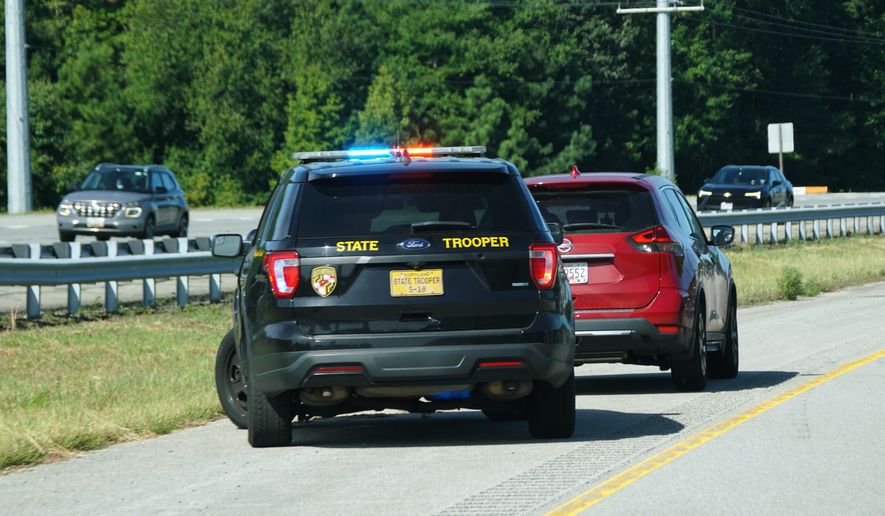More than 1 in 3 drivers ignore “slow down, move over” laws designed to prevent fatal collisions as they pass stopped emergency vehicles, the American Automobile Association reported Tuesday.
The AAA Foundation for Traffic Safety analyzed surveillance footage of 12,365 drivers passing 169 accident scenes from June 2024 to this past June and found that 36% of them neither slowed down nor moved over when passing stopped vehicles.
The remaining 64% of drivers did one or the other, with just 5% doing both, according to the study, conducted by researchers from the University of Maryland and the transportation group Westat. They found that most drivers merely switched lanes without slowing down.
“It’s clear that awareness alone isn’t enough,” said Gene Boehm, AAA’s CEO, in a statement. “Drivers need to understand what these laws require and why they matter.”
Reports of dangerous driving and roadside fatalities surged after the COVID-19 public health emergency in 2020.
The Emergency Responder Safety Institute estimates that the number of police officers, tow truck drivers, federal safety patrol workers and paramedics or firefighters killed by passing cars jumped from 44 in 2019 to 65 in 2021.
Last year, passing cars killed 46 emergency responders as they attended to stopped vehicles.
“As Americans returned to the roads after the pandemic shutdowns, distracted driving surged to record levels,” said Scott Holeman, spokesman for the Insurance Information Institute, an industry group, in an email. “This increase has contributed to higher rates of crashes, injuries, and fatalities across the country.”
According to AAA, which supports the “move over” laws, inconsistent enforcement and confusion about differences across states have led drivers to “perceive little risk of being ticketed.”
The report noted that just 13 states define “slow down” for drivers. They include Texas, which requires that cars slow to 20 mph below the posted speed limit, and Michigan, which instructs motorists to slow to 10 mph under it.
Penalties for failing to move over and slow down also vary widely, ranging from a low of $30 in Florida to $2,500 in Virginia.
Reached for comment, some highway safety experts said the AAA report confirms that three decades of “move over” laws have failed to make the roads safer.
“Though the laws were undoubtedly well-intended, there is no evidence in the form of reliable data that they achieved their goal,” said Bonner Cohen, a senior fellow at the right-leaning National Center for Public Policy Research.
Peter Earle, a senior economist at the free-market American Institute for Economic Research, noted that some studies show less than 50% compliance with the laws.
“There is some effect, but much less than ideal,” Mr. Earle said.
Most “move over” laws require drivers to slow down and change lanes when approaching emergency vehicles stopped on the road.
South Carolina enacted the first such policy in 1996 after a car injured a paramedic responding to an accident.
Other states and the District passed similar laws by 2012, with some expanding them in recent years to include nonemergency vehicles.
This week’s AAA report found that two-thirds of drivers responding to a survey know of the laws, but few followed them as written.
The report called upon states to agree on a single definition of “slow down,” increase visible enforcement of the laws, and launch public awareness campaigns.
Robert Dillman, a former police officer who offers online driving lessons through the Nevo Driving Academy in Virginia, urged motorists to use common sense when they feel uncertain about how to pass stopped vehicles.
“When you see flashing lights ahead, respect the space, ease off the gas and move over,” Mr. Dillman said. “It is not just the law; it is how you keep people alive on the road.”
• Sean Salai can be reached at ssalai@washingtontimes.com.




Please read our comment policy before commenting.